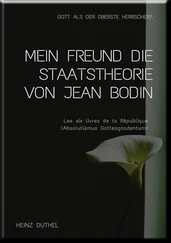Yet, this analysis is only partial. This much has been known even to modern physical science. Beyond that, the research of physical science cannot reach. But the inquiry does not stop in consequence. We have not yet found that one, by knowing which everything else will be known. We have resolved the whole universe into two components, into what are called matter and energy, or what the ancient philosophers of India called Akasha and Prana. The next step is to resolve this Akasha and the Prana into their origin. Both can be resolved into the still higher entity which is called mind. It is out of mind, the Mahat, the universally existing thought-power, that these two have been produced. Thought is a still finer manifestation of being than either Akasha or Prana. It is thought that splits itself into these two. The universal thought existed in the beginning, and that manifested, changed, evolved itself into these two Akasha and Prana: and by the combination of these two the whole universe has been produced.
We next come to psychology. I am looking at you. The external sensations are brought to me by the eyes; they are carried by the sensory nerves to the brain. The eyes are not the organs of vision. They are but the external instruments, because if the real organ behind, that which carries the sensation to the brain, is destroyed, I may have twenty eyes, yet I cannot see you. The picture on the retina may be as complete as possible, yet I shall not see you. Therefore, the organ is different from its instruments; behind the instruments, the eyes, there must be the organ So it is with all the sensations. The nose is not the sense of smell; it is but the instrument, and behind it is the organ. With every sense we have, there is first the external instrument in the physical body; behind that in the same physical body, there is the organ; yet these are not sufficient. Suppose I am talking to you, and you are listening to me with close attention. Something happens, say, a bell rings; you will not, perhaps, hear the bell ring. The pulsations of that sound came to your ear, struck the tympanum, the impression was carried by the nerve into the brain; if the whole process was complete up to carrying the impulse to the brain, why did you not hear? Something else was wanting — the mind was not attached to the organ. When the mind detaches itself from the organ, the organ may bring any news to it, but the mind will not receive it. When it attaches itself to the organ, then alone is it possible for the mind to receive the news. Yet, even that does not complete the whole. The instruments may bring the sensation from outside, the organs may carry it inside, the mind may attach itself to the organ, and yet the perception may not be complete. One more factor is necessary; there must be a reaction within. With this reaction comes knowledge. That which is outside sends, as it were, the current of news into my brain. My mind takes it up, and presents it to the intellect, which groups it in relation to pre-received impressions and sends a current of reaction, and with that reaction comes perception. Here, then, is the will. The state of mind which reacts is called Buddhi, the intellect. Yet, even this does not complete the whole. One step more is required. Suppose here is a camera and there is a sheet of cloth, and I try to throw a picture on that sheet. What am I to do? I am to guide various rays of light through the camera to fall upon the sheet and become grouped there. Something is necessary to have the picture thrown upon, which does not move. I cannot form a picture upon something which is moving; that something must be stationary, because the rays of light which I throw on it are moving, and these moving rays of light, must be gathered, unified, co-ordinated, and completed upon something which is stationary. Similar is the case with the sensations which these organs of ours are carrying inside and presenting to the mind, and which the mind in its turn is presenting to the intellect. This process will not be complete unless there is something permanent in the background upon which the picture, as it were, may be formed, upon which we may unify all the different impressions. What is it that gives unity to the changing whole of our being? What is it that keeps up
the identity of the moving thing moment after moment? What is it upon which all our different impressions are pieced together, upon which the perceptions, as it were, come together, reside, and form a united whole? We have found that to serve this end there must be something, and we also see that that something must be, relatively to the body and mind, motionless. The sheet of cloth upon which the camera throws the picture is, relatively to the rays of light, motionless, else there will be no picture. That is to say, the perceiver must be an individual. This something upon which the mind is painting all these pictures, this something upon which our sensations, carried by the mind and intellect, are placed and grouped and formed into a unity, is what is called the soul of man.
We have seen that it is the universal cosmic mind that splits itself into the Akasha and Prana, and beyond mind we have found the soul in us. In the universe, behind the universal mind, there is a Soul that exists, and it is called God. In the individual it is the soul of man. In this universe, in the cosmos, just as the universal mind becomes evolved into Akasha and Prana, even so, we may find that the Universal Soul Itself becomes evolved as mind. Is it really so with the individual man? Is his mind the creator of his body, and his soul the creator of his mind? That is to say, are his body, his mind, and his soul three different existences or are they three in one or, again, are they different states of existence of the same unit being? We shall gradually try to find an answer to this question. The first step that we have now gained is this: here is this external body, behind this external body are the organs, the mind, the intellect, and behind this is the soul. At the first step, we have found, as it were, that the soul is separate from the body, separate from the mind itself. Opinions in the religious world become divided at this point, and the departure is this. All those religious views which generally pass under the name of dualism hold that this soul is qualified, that it is of various qualities, that all feelings of enjoyment, pleasure, and pain really belong to the soul. The nondualists deny that the soul has any such qualities; they say it is unqualified.
Let me first take up the dualists, and try to present to you their position with regard to the soul and its destiny; next, the system that contradicts them; and lastly, let us try to find the harmony which nondualism will bring to us. This soul of man, because it is separate from the mind and body, because it is not composed of Akasha and Prana, must be immortal. Why? What do we mean by mortality? Decomposition. And that is only possible for things that are the result of composition; anything that is made of two or three ingredients must become decomposed. That alone which is not the result of composition can
never become decomposed, and, therefore, can never die. It is immortal. It has been existing throughout eternity; it is uncreate. Every item of creation is simply a composition; no one ever saw creation come out of nothing. All that we know of creation is the combination of already existing things into newer forms. That being so, this soul of man, being simple, must have been existing for ever, and it will exist for ever. When this body falls off, the soul lives on. According to the Vedantists, when this body dissolves, the vital forces of the man go back to his mind and the mind becomes dissolved, as it were, into the Prana, and that Prana enters into the soul of man, and the soul of man comes out, clothed, as it were, with what they call the fine body, the mental body, or spiritual body, as you may like to call it. In this body are the Samskâras of the man. What are the Samskaras? This mind is like a lake, and every thought is like a wave upon that lake. Just as in the lake waves rise and then fall down and disappear, so these thought-waves are continually rising in the mind-stuff and then disappearing, but they do not disappear for ever. They become finer and finer, but they are all there, ready to start up at another time when called upon to do so. Memory is simply calling back into waveform some of those thoughts which have gone into that finer state of existence. Thus, everything that we have thought, every action that we have done, is lodged in the mind; it is all there in fine form, and when a man dies, the sum total of these impressions is in the mind, which again works upon a little fine material as a medium. The soul, clothed, as it were, with these impressions and the fine body, passes out, and the destiny of the soul is guided by the resultant of all the different forces represented by the different impressions. According to us, there are three different goals for the soul.
Читать дальше












